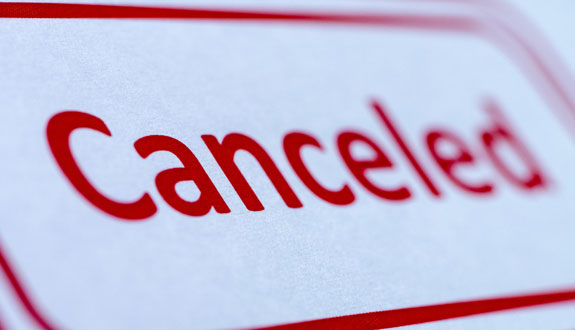[Updates for April 15] LSAC held a webinar today to clarify some outstanding questions that basically everyone had about LSAT-Flex. For one, we finally got a date! Or, two dates, actually. It’ll be held Monday, May 18 and Tuesday, May 19. However, test takers who receive accommodations may be able to take the exam it a later date. No matter when you take the test, however, you’ll get your scores no later than Friday, June 5.
Also, we got some clarification on how the thing will be scored. LSAC will not double-count the Logical Reasoning section. Each section will count equally towards your final scaled score. Which makes the LSAT-Flex a slightly different beast than your typical LSAT, in which the Logical Reasoning section counts towards a little more than half of your score. Now, the Logical Reasoning section might count as roughly a third of your score. Great news for people who crush the Logic Games and Reading Comp sections. Maybe less great news for who love to Reason Logically.
It might be especially bad news for those who hate Reading Comp, which typically has more questions than either a single Logical Reasoning or Logic Games section, and may now have the largest impact on your final score. LSAC did note several times during the webinar that there will be “approximately” the same number of questions in each of the three sections. Logical Reasoning sections vary between 24 and 26 questions, but typically have 25 or 26. Reading Comp sections vary between 26 and 28 questions, but almost always have 27. Logic Games sections vary between 22 and 24 questions, but almost always have 23. It’s unlikely that suddenly they’ll make a 25-question Reading Comp and Logic Games section for the LSAT-Flex — any section that shows up on an LSAT has been developed and tested over a years-long process. So the sections that’ll show up on the LSAT-Flex were developed for a normal LSAT, at a time before the LSAT-Flex (or, for that matter, COVID-19) existed. But we suppose it’s possible that they’ll use 24-question Logic Games sections, and 26-question Reading Comp sections, to slightly reduce the impact of that Reading Comp section.
If this scoring news gives you some concern about whether you should take the LSAT-Flex, LSAC is also extending the deadline to reschedule your exam. You now have until this Friday, April 17 at 11:59 pm Eastern to fill out the April 2020 LSAT Rescheduling form on LSAC’s website, to request a voucher to take a future test date. If, on the other hand, you decide to take the LSAT-Flex, make sure to check your LSAC account or fill out that April 2020 LSAT Rescheduling (or call or email LSAT) to ensure that you’re registered to take the LSAT-Flex. Registration into the LSAT-Flex was supposedly automatic for those registered to take the April 2020 LSAT, but some recent emails from LSAC have suggested that students might have to opt-in to taking the exam.
However, if you decide to roll the dice with the at-home LSAT-Flex, we have a live online crash course we made for this exam. We built a brand new nine-lesson course, designed specifically for those who have been studying for the LSAT already, but need a final push to improve their accuracy, speed, and testing strategies. This course will also provide LSAT-Flex-specific study advice taking into account the shorter testing format, the at-home testing environment, and the equally-scored sections. Whether you’re a former or current Blueprint student, or have never taken a course with us, our LSAT-Flex course can make you one of the most well-prepared students for new LSAT-Flex. More details on this unique course here!
————
It was inevitable: LSAC announced today that the April 25, 2020 LSAT is officially canceled.
That wasn’t the surprising part of today’s announcement, though. This, however, is: LSAC also announced that it will hold a remotely proctored, at-home LSAT in late May for those signed up for the April LSAT. They’re dubbing this LSAT-Flex. And there will only be three sections. One Logical Reasoning, one Logic Games, and one Reading Comprehension section. No second Logical Reasoning section. No experimental section. No fifteen-minute break.
Only those already registered for the April LSAT can take the at-home LSAT-Flex. And there’s not an exact date for when this exam will be held yet. LSAC promises details will be divulged by Friday, April 17. And if you were originally signed up for the March or April LSAT but proactively switched to June or July, you can contact LSAC’s Candidate Services (LSACinfo@LSAC.org or (215) 968-1001) if you’d like to take the at-home LSAT.
Now, obviously there are a lot of questions if you want to take this at-home LSAT. First, how will it be scored? Traditional LSATs have four scored sections; this one will only have three. On traditional LSATs your raw score — the number of questions you answer correctly out of, usually 101 questions — gets converted to a scaled score — a number between 120 and 180. This LSAT, however, will probably have only 75 or 76 questions. Will they base your raw score on percentages? For example, if you answer 50 out of 75 questions correctly (so you go 66.67% of the questions right) — will your raw score just be 67? Or, will they just double just your Logical Reasoning raw score, since that’s the section that got removed? So, for example, if you got 50 out of the 75 questions correct, but 20 of those were from the one Logical Reasoning question, would your raw score be 70? Or will they just … ahem … flatten the curve of this exam? So raw scores from 0-75/76 get converted to a scaled score between 120-180?
Second, what’s security going to be like? The at-home Writing section of the LSAT, which was introduced in June 2019, might give us a preview. Anyone who’s taken the at-home Writing section of the LSAT knows that LSAC takes the secure proctoring of remote exams very seriously. To complete the Writing section at home, you use test software provided by LSAC. This software uses your computer’s camera and microphone to film and record you throughout the entire process. You have to show your camera an ID, all sides of your scratch paper, and take it on a tour of your residence to make sure there aren’t any resources or people who might assist you in writing a short persuasive essay. And this is for the Writing section — an unscored portion of the LSAT that, frankly, doesn’t play much of a role in your law school admissions. So will the security be even more intense for the LSAT, the scored exam that plays the biggest role in your law school admissions? And how will they treat testing irregularities? On the Writing section, many test takers’ submissions are rejected for testing irregularities — mainly, not following the intense security guidelines exactly. That’s not a big deal on the Writing section — you can just try again, any time. It’s a much bigger deal if you have to sign up — and potentially pay $200 — to take the LSAT in June or July or later.
Third, is everyone going to get the same LSAT? LSAC claims that test takers will be able to choose from a variety of times to take this test. That would create a lot of opportunities for … chicanery (read: cheating). Usually, the LSAT is administered at 8:30 am or 12:30 pm, regardless of the time zone. So people on Eastern Time start the exam before people on Central, Mountain, or Pacific Time do. It’s not a big deal on normal LSATs; by the time people finish the five-section exam in the East, everyone in the Central, Mountain, and Pacific time zones have already begun their LSATs. So there’s no chance for Easterners to text their Westerner buddies and give them the scoop on a tough game or anything like that. Unless all LSATs are administered at the same time (as in, an LSAT given at 12:30 pm Eastern Time would be given at 9:30 am Pacific Time), an Easterner finishing a three-section LSAT will have an opportunity to do that though. If they’re not administering the LSAT-Flex at the same time, they’ll have to use a bunch of different LR, RC, and LG sections. How many versions of the LSAT-Flex will there be? I mean, these sections are valuable resources (it’s been estimated that creating a single LSAT costs at least $100,000, meaning each section is probably worth more than your car). Even if there are multiple tests, the opportunity for … chicanery … increases the fewer tests that there are.
I have many more questions; you probably do as well. In an attempt to answer these questions, LSAC is holding a webinar tomorrow, April 8, at 1 pm Eastern/10 am Pacific. I’d strongly encourage you to attend. If you can’t make it, we’ll be recapping everything on our Instagram Live at 3 PM Eastern/Noon Pacific.
If you were signed up for the April LSAT, but a take-home LSAT seems too crazy to handle, you can still change your test date using the April 2020 LSAT Test Date Change form on LSAC’s website. On this form, you can choose to get a coupon to use on a future test date (unlike the March test, it doesn’t seem like you can get a refund), and hope that whatever test you sign up for will be held administered as an in-person, proctored exam. You have until Wednesday, April 15 at 11:59 pm Eastern to request any changes.
So, to recap, the April LSAT was canceled, shutting down one avenue to take the LSAT. But LSAC also opened another avenue with the May at-home LSAT. Whether you plan on taking the at-home LSAT in May, or punting to June, July, or later, we can help you find the study plan that works best for you. You can get comfortable in your new remote LSAT testing center (i.e. your bedroom) by prepping for the LSAT with our LSAT Prep Online Anytime our Live Course class. Reach out to us, schedule a time to speak to an LSAT Advisor, or just reach out to us tomorrow on Instagram, we’ll find a study plan that can get you prepared for the LSAT — whenever, or now, however, you take the test.




